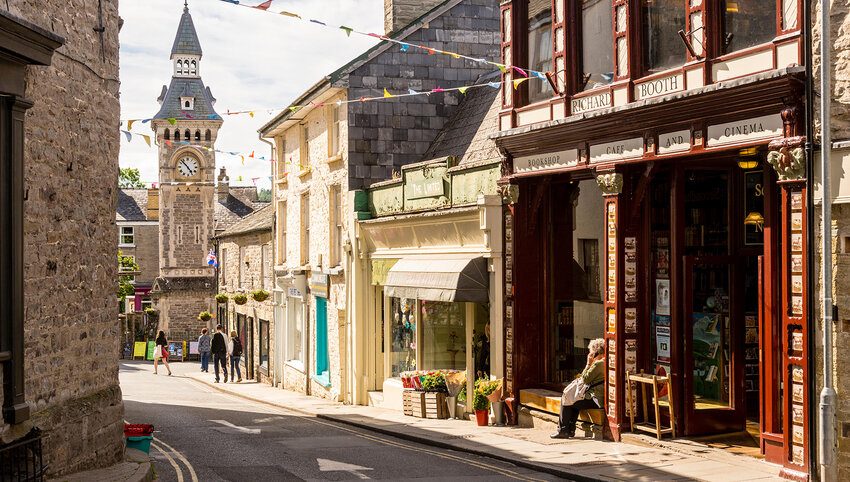In 2001, former U.S. President Bill Clinton famously described the Hay Festival of Literature & Arts as the “Woodstock of the Mind.” This literary festival — which started in 1988 and takes place over 10 days from late May into June — is one of the biggest and best of its kind in the world. But why is it held in a tiny village near the Welsh-English border with a population of just over 2,000? Let’s look into the bookish history of Hay-on-Wye, Wales, and find out.
The Hay Festival’s Origins
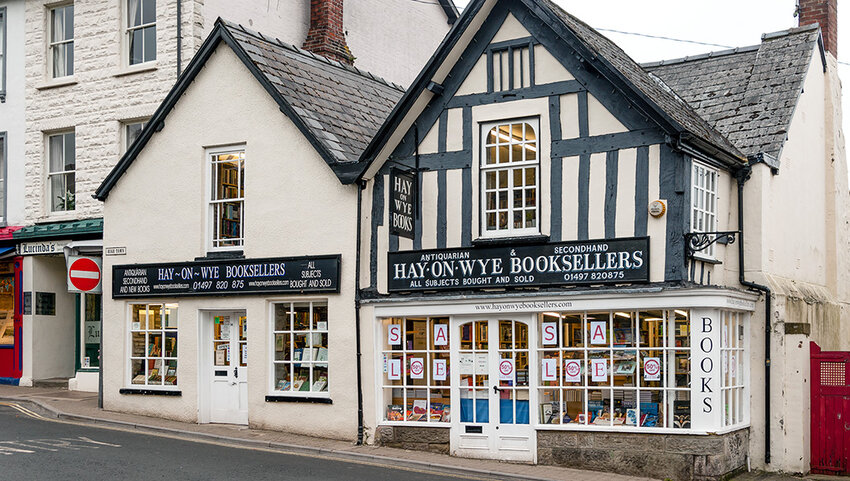
This popular festival grew from humble beginnings. One day in 1987, the festival’s founders, Peter Florence and his parents Rhoda and Norman, were sitting around their kitchen table and tossed around the idea of a book festival for literature lovers to come together and share ideas. The first gathering, held in 1988, attracted just a handful of people, gathered in the garden of Kilverts Pub in Hay-on-Wye and a meeting at the hall of the British Legion.
The following year, Florence convinced famed playwright Arthur Miller to attend, and when he took to the stage, he quipped, “Hay-on-Wye, is that some kind of sandwich?” But the event quickly gained momentum. Over subsequent years, the festival grew to incorporate readings and talks in numerous venues across Hay-on-Wye, including the town’s primary school. In 2005, the festival moved to a dedicated site on the edge of town, where it’s been ever since.
Hay-on-Wye’s Literary Chops
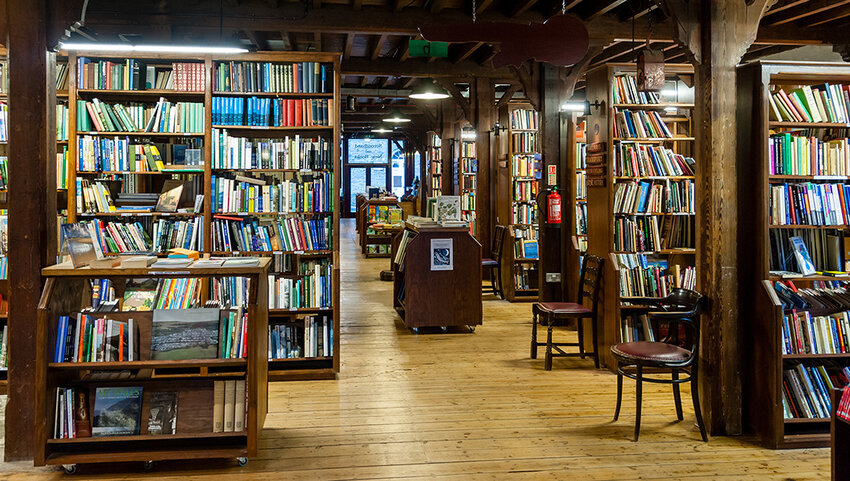
But why Hay-on-Wye? The village, located just north of the Black Mountains, had a close association with books that was established long before the idea of a festival came up. The driving force behind this reputation was Oxford-educated Richard Booth. Faced with the growing reality of population shrinkage in many small Welsh towns in the mid-20th century, Booth wanted to create a reason for people to remain in Hay-on-Wye rather than move to larger cities.
His first idea was opening a secondhand bookshop. Booth needed suitable premises, which he found in the town’s old fire station, no longer required by the emergency services. Next came the problem of how to fill it: Booth learned that in the U.S., many libraries were closing and were discounting their stocks of books. The heavily discounted prices were low enough to make bulk shipping back to the U.K. cost-effective, and so the first bookshop in Hay-on-Wye was born in 1962.
Many others would follow, including Booth’s eponymous store which opened in Hay Castle in 1976 and was later named by Guinness World Records the world’s largest secondhand bookstore. That year, the Welsh tourism board began to tout Hay-on-Wye as the world's first "Town of Books." Now, with more than 20 bookshops open year-round, Hay’s reputation as a literary hub continues to lure bookworms from far afield.
Word Gets Out
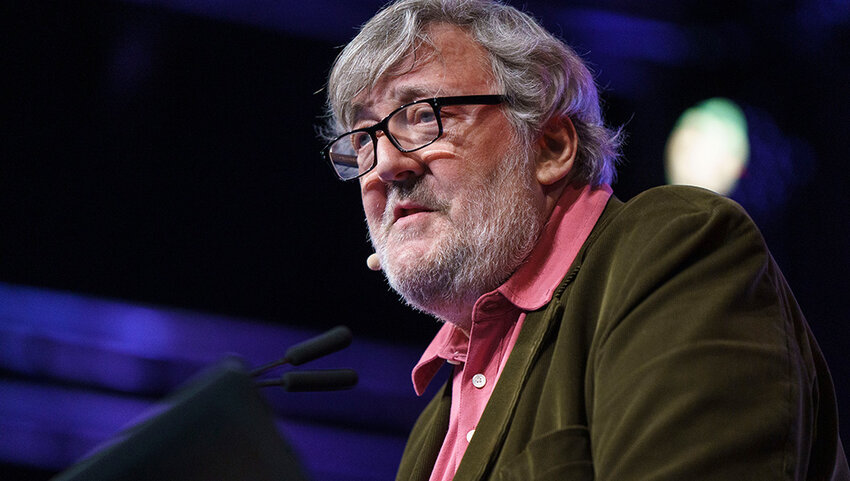
As the Hay Festival grew in popularity, word spread quickly. By the time Bill Clinton stepped onto the stage in 2001, big names in the world of publishing and journalism — not to mention public figures and Hollywood A-listers — were an eagerly anticipated part of the line-up. While the first event had been funded by the winnings from a poker game, it soon became successful enough for the organizers to secure corporate sponsorship. One of the festival’s first sponsors was The Sunday Times. Other newspapers such as The Guardian and The Telegraph also took a turn — in addition to organizations such as Tata, the Arts Council of Wales, the British Council, and the BBC.
Though literature remains at the heart of the festivities, the Hay Festival has also branched out to include music and film. Attendees can hear speeches from Nobel Prize winners, delve into the memoirs of actors, or hear bestselling authors read their latest novels. Over the years, rapt audiences have welcomed a diverse set of guests, including Lauren Bacall, Rob Lowe, Tony Curtis, Kathleen Turner, Stephen Fry, Stephen Hawking, Bill Bryson, Kazuo Ishiguro, Margaret Atwood, Germaine Greer, Olivia Colman, Rupert Everett, Chelsea Clinton and many more.
The Festival Today
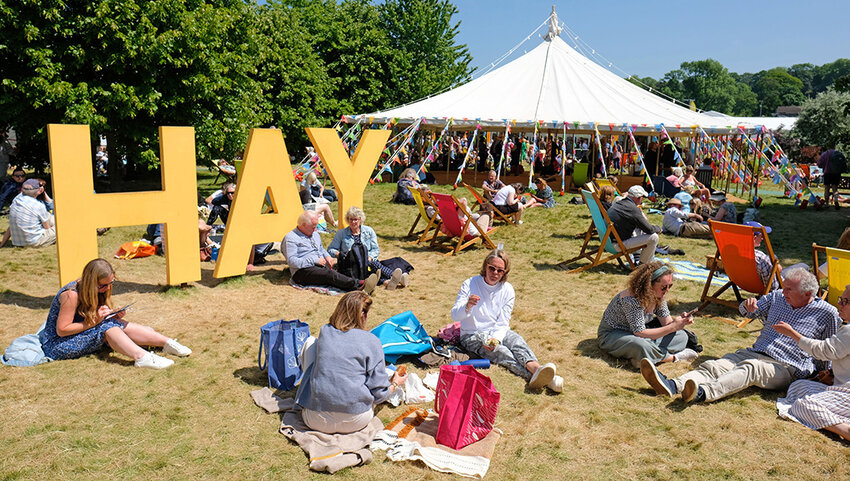
The Hay Festival has become Britain’s largest literary event and an annual cultural touchstone in the U.K. — and around the world. These days, 10 venues form a tented village on the outskirts of Hay-on-Wye. Alongside them, you’ll find pop-up shops — including a festival book store that stocks around 55,000 titles with a connection to those who have taken the stage — and a selection of cafés and restaurants. Typically, more than 100,000 people descend on the village each spring, and tickets to the most highly-anticipated sessions sell out well in advance. But with around 800 events and 700 or so speakers to choose from, there’s something for everyone. The festival also features a spin-off event for kids called Hay Days, which runs alongside the main festival, and the #HAYYA program caters to teens.
And the Hay Festival is no longer confined to the U.K. In 2023, Hay Festivals have brought readers and writers together in the Colombian cities of Cartagena and Medellin; Queretaro, Mexico; Segovia, Spain; and Arequipa, Peru. Past events have also taken place as far afield as the Maldives, Kenya, and Bangladesh. Forums further expand Hay’s reach, taking place in cities such as Dallas, Texas.
Still, the original festival retains top billing and helps to keep Hay-on-Wye in the hearts and minds of anyone with a passion for books. Indeed, Britain’s “Town of Books” is just as much an attraction as the festival itself, and making a pilgrimage to its antiquarian and secondhand bookshops is a must for any bookworm.
Featured image credit: CMH.Images/ Alamy Stock Photo

